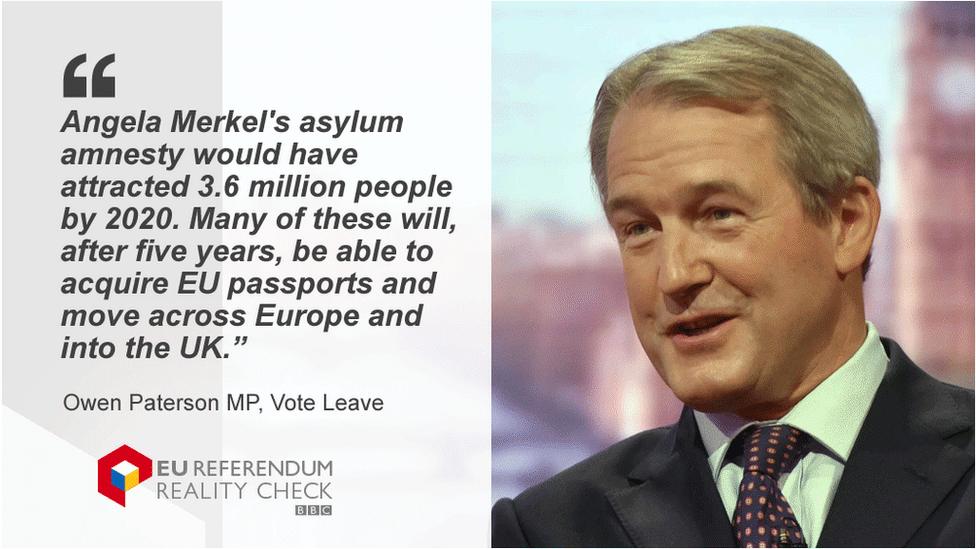Reality Check: How many refugees in Germany will become EU citizens?
- Published

The Claim: Owen Paterson made a speech this week saying that many of the refugees who have arrived in Germany will be able to get German passports and then travel freely around the EU, including to the UK.
Reality Check verdict: We don't know yet how many refugees in Germany will successfully claim asylum let alone become German citizens, but it is true that anyone who holds a German passport can travel freely throughout the EU.
Around 1.1 million refugees arrived in Germany last year, according to the German government.
That same year, there were 476,510 formal asylum applications in Germany, according to the EU statistics agency Eurostat, external. It takes quite some time for these to be decided.
The German Embassy in London told us that in 2015, 282,726 cases were decided, many of which would have been applications from previous years. Out of these, around half were granted asylum.
Mr Paterson said that Germany's asylum amnesty would attract 3.6 million people by 2020, according to estimates by "Federal Ministries". Given recent statistics that's not an implausible projection.
We asked Mr Paterson's office for the source of his claim and were directed to this report from the Reuters news agency,, external citing unnamed German government officials.
The German Embassy told us that it could not confirm Mr Paterson's figure and that there were no German government forecasts for the number of refugees coming to Germany for 2016, or any of the following years.
A refugee granted asylum who has lived in Germany for six to eight years can apply for German citizenship if they fulfil a number of conditions, external. You need citizenship to be able to apply for a German passport, which would allow you the freedom to live, work and move anywhere in the European Union. Becoming a German citizen means a person has to give up their citizenship of another country, unless they have special permission to keep it.
Germany has recently toughened up its asylum laws, speeding up deportations and suspending family reunions for two years; 22,000 people were deported in 2015.
Along with other EU countries, Germany is trying to slow the flow of migrants to Europe through the EU-Turkey deal, but it remains to be seen how successful it will be.



- Published22 February 2016
